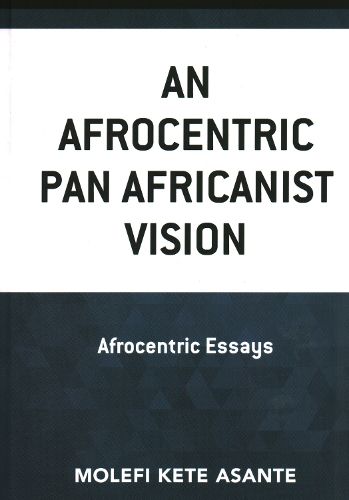Readings Newsletter
Become a Readings Member to make your shopping experience even easier.
Sign in or sign up for free!
You’re not far away from qualifying for FREE standard shipping within Australia
You’ve qualified for FREE standard shipping within Australia
The cart is loading…






In An Afrocentric Pan Africanist Vision: Afrocentric Essays, Molefi Kete Asante, engages the age-old debate on Pan Africanism by providing an innovative orientation to the established discourse developed during the twentieth century. Asante opens an interrogation of the Padmorian tradition of a socialist Pan Africanism by suggesting that a deeper entry into the histories and narratives of the literary, economic, social, and spiritual values of the thousands of African societies scattered throughout the world could sustain a different agency analysis of Pan Africanism without grafting an external idea on the unity of Africa. Using his vast knowledge of the history of Africa, Asante suggests that the African renaissance cannot take place unless there is a commitment to creating an African community conscious of its own myths, origins, and economic, cultural, and philosophical traditions.
$9.00 standard shipping within Australia
FREE standard shipping within Australia for orders over $100.00
Express & International shipping calculated at checkout
Stock availability can be subject to change without notice. We recommend calling the shop or contacting our online team to check availability of low stock items. Please see our Shopping Online page for more details.
In An Afrocentric Pan Africanist Vision: Afrocentric Essays, Molefi Kete Asante, engages the age-old debate on Pan Africanism by providing an innovative orientation to the established discourse developed during the twentieth century. Asante opens an interrogation of the Padmorian tradition of a socialist Pan Africanism by suggesting that a deeper entry into the histories and narratives of the literary, economic, social, and spiritual values of the thousands of African societies scattered throughout the world could sustain a different agency analysis of Pan Africanism without grafting an external idea on the unity of Africa. Using his vast knowledge of the history of Africa, Asante suggests that the African renaissance cannot take place unless there is a commitment to creating an African community conscious of its own myths, origins, and economic, cultural, and philosophical traditions.